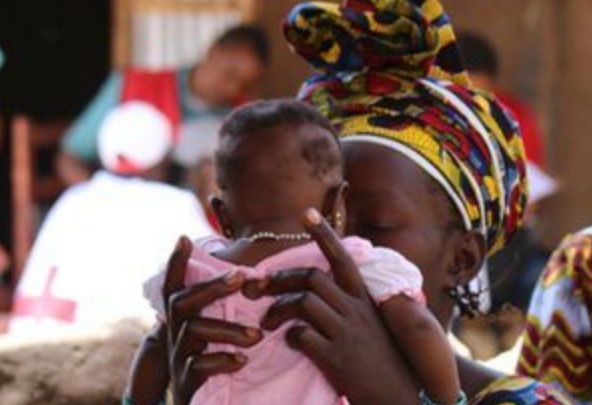Malian mom and baby, Mali Red Cross-Canadian Red Cross MNCH Program (Koulikoro, Mali).
Save the Children, the charity organisation, says at least 17.6 million children will be born into hunger in 2023.
In a statement on Monday in commemoration of World Children’s Day, Save the Children said it found in a research analysis, that about one-fifth more newborns will face hunger in 2023 compared to 14.4 million children in 2013.
The organisation also said most of the world’s malnourished children in 2023 are from Africa and Asia.
“At least 17.6 million children will be born into hunger this year, or about 33 children a minute, which is a 22% jump from a decade ago,” the statement reads.
Advertisement
“Economic instability, conflicts and repeated climate shocks have contributed to a devastating hunger crisis that is affecting every corner of the world.
“According to the analysis, Africa and Asia account for 95% of the world’s undernourished births in 2023. The data does not include the impact the escalation of violence in the occupied Palestinian territory is having on hunger or the birth rate in the region.”
Save the Children said in countries where at least 25 percent of the population is facing chronic hunger, the Democratic Republic of Congo (DRC) will have the highest number of babies born undernourished in 2023.
Advertisement
“About 1.5 million newborns are projected to be born into the grips of hunger in the DRC — the highest number recorded for the country since FAO records began in 2001,” the statement reads.
“Projections indicate that in 2023, an estimated 6.6 million children under the age of five will be undernourished in the DRC.
“Save the Children is calling on world leaders meeting at the global food security summit in the UK today to address the root causes of acute food and nutrition insecurity.
“Only by putting an end to global conflict, tackling the climate crisis and global inequality, and building more resilient health, nutrition and social protection systems that are less vulnerable to shocks like COVID-19, conflicts, and the climate crisis, will we be able to ensure the same warnings are not ringing out again in the coming years.
Advertisement
“The Child right organisation is also calling for greater collaboration, dialogue and investment across sectors with, and leadership by, local communities, to bolster response planning and implementation, as well as our abilities to act early and prevent predictable shocks from turning into crises.
“Save the Children is also calling on world leaders to scale up low-cost interventions to prevent and treat malnutrition: community-based treatment for acute malnutrition, supporting and protecting breastfeeding, and investing in community and primary-level healthcare.”
Add a comment






